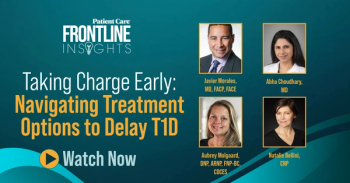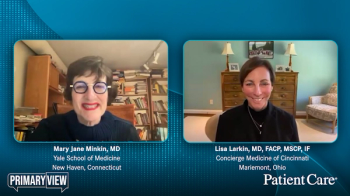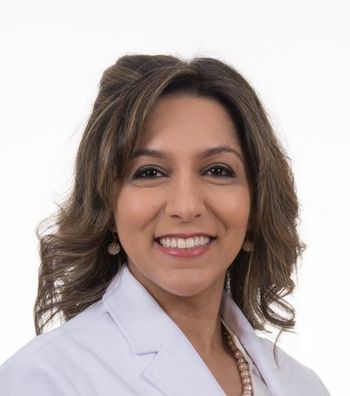
Our network connects providers, health plans, and life science companies to deliver seamless care that benefits everyone

Our network connects providers, health plans, and life science companies to deliver seamless care that benefits everyone

Panelists discuss how delaying intervention between stage II and stage III T1D can result in irreversible β-cell loss, higher rates of complications, and poorer overall outcomes for patients.

Panelists discuss how understanding the stages of type 1 diabetes (T1D) progression is crucial for early intervention, with a focus on delaying disease advancement through proactive treatments like teplizumab.

Panelists discuss how delaying intervention in stage 2 T1D can lead to faster disease progression, increased risk of complications like diabetic ketoacidosis, and greater long-term burden on patient health and quality of life.

Panelists highlight the burden of type 1 diabetes including the significant physical, emotional, and financial challenges faced by patients and their families, emphasizing the need for early intervention and proactive management strategies.

Panelists discuss strategies for simplifying complex information for primary care physicians (PCPs), provide tips on how PCPs can effectively communicate evidence-based treatment options to patients, and outline actionable points and key takeaways to enhance patient care in managing menopause symptoms.

Panelists discuss alternative therapies for women who are not candidates for or choose not to use hormonal therapy, review nonhormonal treatment options recommended by the North American Menopause Society, and explore the growing importance of Level I evidence and consensus opinions in creating a more holistic view of available therapies, both hormonal and nonhormonal.

Panelists discuss key considerations for women taking hormonal therapy, emphasizing the importance of individualized treatment plans and shared decision-making to evaluate the risk-benefit profile of therapy.

Panelists discuss clinical trial data suggesting a small but higher incidence of endometrial hyperplasia or malignancy with fezolinetant, while no cases of endometrial hyperplasia or malignancy were observed with elinzanetant in a long-term safety study.

Panelists discuss why elinzanetant is likely to be associated with a lower risk of liver injury due to its distinct molecular structure compared to fezolinetant, and compare the adverse event profiles of the 2 drugs, highlighting that elinzanetant is more commonly associated with headache and fatigue while fezolinetant is linked to abdominal pain, diarrhea, insomnia, and back pain.

Panelists discuss why a warning about serious liver injury was added to the prescribing information for fezolinetant following a postmarketing case of drug-induced liver injury, and review updated guidelines for baseline liver testing, recommended monitoring, symptoms indicating the need to discontinue the medication, and key points for addressing patient concerns about liver health.

Panelists discuss how to simplify the physiology of KNDy neurons and neurokinin (NK) receptors for primary care physicians, explaining how NK3 antagonism reduces hot flashes, while NK1 antagonism helps alleviate sleep disturbances and night sweats, with fezolinetant and elinzanetant serving as key nonhormonal treatment options.

Panelists discuss how neurokinin 3 (NK3) receptors contribute to vasomotor symptoms (VMS) and how antagonism of NK3 receptors with drugs like fezolinetant can effectively reduce VMS, while also exploring the dual receptor action of elinzanetant, which blocks both NK1 and NK3 receptors to improve VMS and associated sleep disturbances.

Panelists discuss how KNDy neurons, which coexpress kisspeptin, neurokinin B (NKB), and dynorphin genes, play a crucial role in hormonal reproduction and the development of vasomotor symptoms (VMS) in menopause.

Geriatric psychiatrist and neurocognitive researcher George Grossberg, MD, highlights the mechanism of action for the new dextromethorphan/bupropion combination.

William Grady, MD, coauthor of the ECLIPSE clinical trial, discusses the study's rationale, methods, and key findings.

ACIP recommendations for the most appropriate older population for the RSV vaccine has shifted and the NFID medical director explains why.

Rebecca Hartman, MD, MHP, assistant professor of dermatology at Brigham and Women's Hospital and Harvard Medical School, reviews new point-of-care detection technology.

Topical corticosteroids, once revolutionary for treatment of atopic dermatitis, are used just sparingly today; dermatologist Mona Shahriari, MD, lists the reasons.

Dermatologist Rebecca Hartman, MD, MPH, said that reliable point-of-care screening results can help reduce unnecessary specialist referral for benign lesions.

Not all atopic dermatitis requires treatment by a specialist, says this dermatologist, and she collaborates regularly with her primary care colleagues.

The DermaSensor skin cancer screening device was pitted against clinical impressions of lesions suspected with high confidence to be melanoma. Results, here.

Dermatologists at high volume dermatology centers referred suspicious lesions to pathology for biopsy and diagnosis. The results were compared with DermaSensor read-outs.

A rapid increase in the rate of melanoma diagnoses could be the result of multiple factors, explains the Harvard assistant professor of dermatology.

A bothersome skin lesion is typically first seen and assessed in primary care. An AI-based point-of-care device may help enhance triage, says Rebecca Hartman, MD, MPH.

Shahriari, assistant clinical professor of dermatology at Yale University School of Medicine, says greater understanding of the condition has expanded the population for the diagnosis.

Dermatology thought leader Mona Shihriari, MD, offers a brief overview of the inflammatory skin disease for primary care clinicians.

Women who receive a false positive breast cancer screening result may forego future mammograms. Thoughtfully counsel any young patient who may be feeling this way.

After a false positive breast cancer screening result, women may be reluctant to participate in future screening, a topic that could benefit from the primary care touch.

Even after adjusting for breast density, studies reveal a significantly greater risk for a cancer diagnosis within 2 decades. A UC Davis expert offers details.